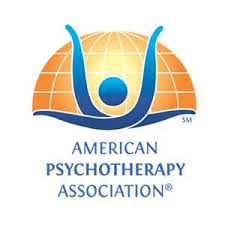Family Therapy

Children’s Social Development and Overcoming Parenting Challenges
The family is the very first social unit where children learn about socially acceptable behavior. It is here where the rules and guidelines that govern family members’ interactions are modeled and the consequences of unsafe or unacceptable behaviors are implemented. As children learn to agree to disagree and to compromise, they hopefully mature into productive members of a society in which they are can love and be loved. While this sounds reasonable and a desirable goal for our children, it belies the complexities and challenges involved in parenting and maintaining a healthy family environment.
Do You Find Yourself:
- Frustrated and challenged to maintain a connection with your children?
- Confused over efforts to communicate with them?
- Feeling as though you are up against a stone wall?
- Stressed over work expectations and parenting responsibilities?
- Ambivalent about the pressures placed upon your children today?
- Struggling to address your children’s self-defeating behaviors in a proactive and positive manner?
- Feeling depressed and alone in this journey of child-rearing?
You are not alone with this challenge; nor do you need to address these concerns on your own. Your feeling isolated and alone can make moving forward difficult and alternatives elusive. Parenting your child into a healthy adulthood is by far one of the most difficult jobs in the world! Not one of us can meet all of the emotional needs of a child. However, with a focus on more effective parenting together we can explore the problematic situations and determine proactive ways of addressing them.
Within the therapeutic relationship you will learn how to determine what is truly occurring, to develop greater insight into the accompanying emotional dynamics and to implement effective methods of resolving the issues. As you work to identify who owns the problem, answers to the following questions will help you develop the tools needed to parent effectively:
- What are the triggers for communication breakdown between you and your child/adolescent?
- Is your child/adolescent reacting to circumstances in school or at home?
- Is there bullying, emotional or physical, in school or in your home?
- Does someone speak to your child in a manner that is harsh or critical?
- How do you identify and discuss the emotions surrounding this problem with your child/adolescent?
- How effective a communicator are you when it comes to conflict resolution?
- Do you have the words to express what you want/need to say?
The role models for parenting within your family were established in your family of origin. If your parents were supportive, loving and consistently clear about acceptable behavior it is likely that your parenting style will reflect what you have experienced. However, if your parents were harsh, critical and generally suspicious of your intent, regardless of your intent to parent differently, chances are that your history will script your legacy! Despite your determination, as well as your own best efforts, on an emotional level the probability is high that you will parent as you have been parented! Unless you have learned how to identify self-defeating, oppositional or antagonistic behaviors as cries for help and direction, you will react rather than respond to the emotional complexities that surface within a family unit.
Parenting challenges the individual as well as the couple in very significant ways. All parents learn their parenting skills from their families of origin and repeat those patterns, regardless of how ineffective they were. However, it is in the relearning, not the repeating, that parents and children can progress. Parent-centered treatment focuses on putting parents back in control of their children’s health and well-being with new resources and confidence.
Family therapy is designed to help you to relearn, not to repeat, patterns of behavior. You will learn how to communicate more effectively within the family unit, how to provide emotional support and respect within it, and how to create an environment which nurtures the success of all. Instead of depression, anxiety and resentment being unwelcomed guests in your home, you can learn how to initiate change and nurture relatedness, respect and kindness in your family!
I am a therapist in Manhasset, call me at (516) 627-1145 for a complimentary consultation to discuss any of these or related topics.
Dr. Maryann B Schaefer
Ph.D. – Counseling, Concentration in Psychology
NYS Licensed Mental Health Counselor
Fellow of American Psychotherapy Association
Phone: (516) 627-1145
Email: drmaryannschaefer@gmail.com
5 Travers Street Manhasset, NY 11030
Office Hours: By appointment only.
